Empowered voices: English 101 inspires “How to be. . .” the next generation of leaders
Throughout the semester, English 101 students have been working towards creating a podcast to showcase their research and empower their voices.
The greatest challenge has been to face ourselves and our emotions while alone in quarantine. For English 101 students, the examination of “aloneness” became a semester-long quest to understand a single idea and explore it to its fullest extent.
Being alone comes with self-reflection as well as several additional emotions — some of which are not entirely positive. In a time when people needed to understand their emotions, and needed to know that they are not alone, in July, This American Life and journalist Bim Adewumni released a podcast titled, “How to Be Alone.”
“How to Be Alone” voiced the pain and confusion that people were experiencing during the lockdown of Spring 2020. Putting this painful time into words and releasing it to the world helped and encouraged many people, including English 101 instructor Mary Ellen Newcomb, to realize that maybe, they really aren’t alone.

“The minute I listened to the podcast, I knew Mrs. Newcomb had an amazing idea. Encourage students to explore a single concept throughout the semester,” said English 101 professor Natalie Rebetsky.
Having their unspoken feelings and struggles put into words inspired Rebetsky and Newcomb to recreate the traditional English 101 plan and have students write research essays that worked toward work creating their own culminating podcast.
“I enjoy listening to podcasts when I don’t have a book to read, and This American Life is always good. I literally chose an episode at random and it happened to be ‘How to Be Alone.’ As I listened, I got a spark of an idea to use something like it for the fall semester,” said Newcomb.
That spark of inspiration turned into a flame as Newcomb dove into her own research of the podcast and how it could relate to the students.
“I began by writing down objectives I thought this project would accomplish, and I was very satisfied that it covered our curriculum and so much more. I thought a podcast was a 21st century final product and would be more interesting than a final paper. And I believed students could benefit from digging into multiple aspects of a single topic. After all, that’s what a college class is meant to do, isn’t it?” said Newcomb.
Newcomb and Rebetsky redesigned the English 101 plan to have the students work on an annotated bibliography and several essays about one topic. Each essay had a different rhetorical focus, and the content could stand alone, but then the final project combined that content into something unique. The students used parts of these essays into one final podcast that resembled the This American Life model, Bim Adewunmi’s “How to Be Alone.”
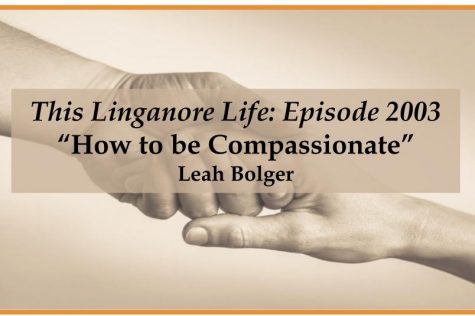
Later, they realized it should be titled This Linganore Life.
These topics include How to be “angry,” “confident,” “forgiving,” “anti-racist,” “rebellious,” “zealous,” and more. There were about 40 choices, and students had to research and commit to one theme for the entire semester.
Senior Gabby Thompson chose the topic, “How to Be an Explorer.” Although this topic was challenging, Thompson was surprised about how many different ways one topic can be expanded. She researched how the early explorers were also conquerors. Then she took an entirely different focus and examined the importance of exploration in early learning.
“I definitely enjoyed the podcast project because it pushed me to research every aspect of one word. I was able to identify so many different aspects of just this one topic that I wouldn’t usually think of. It was challenging at times to think outside of the box and find new sources and ideas, but overall I genuinely loved learning about different ideas that all related in a way. I guess I really became the explorer,” said Thompson.
Not only did this project connect different ideas to each other, but it also connected the students with their words. Senior Maya Apau chose to research the term, “anti-racist,” and, although this was a school project, Apau’s research extended outside of the classroom.
We don’t really learn these things in school, so when I went back and found out the roots of history, issues with mass incarceration and more, it was truly eye opening,
— Maya Apau

“When looking at the list of words, anti-racism drew my attention first. With everything that happened over quarantine with the BLM movement and racial disparities, I was eager to focus on this topic. I think that being in the African American Culture Club (AACC) these past four years has drawn my attention to be more and more aware of culture and race. So, when researching [for English 101], I was able to learn so much. We don’t really learn these things in school, so when I went back and found out the roots of history, issues with mass incarceration and more, it was truly eye opening,” said Apau.
Apau’s research embodies how writing can amplify a student’s voice. Although Apau had prior knowledge of racial struggles in the United States, this project increased her understanding of what it means to be “anti-racist.”
In addition to empowering students’ voices, Rebetsky and Newcomb expected their students to use WeVideo, a video editing software.
Patrick Crockett explored the word rebellious, and when it was time to put the podcast together, Crockett was surprised with how easy the software was to navigate and use.
“Using WeVideo was a lot easier than I had expected. In most [softwares] there’s a struggle with putting everything together and making it sound just the way you imagined it, but WeVideo definitely made it easy,” said Crockett.
Crockett’s podcast did come out just the way he wanted it to, and with the help of WeVideo, he was able to express his own perspective.
Now, more than ever, I believe it’s important for people to see controversial matters from a variety of angles, and I feel like my podcast does that,
— Patrick Crockett
“Now, more than ever, I believe it’s important for people to see controversial matters from a variety of angles, and I feel like my podcast does that. I value the experience of others and their opinions, especially when they’ve lived in the height of racial injustice. I believe the ideas from my podcast, ‘How to Be Rebellious,’ are in strong relation to the values I hold the highest,” said Crockett.
Elizabeth Rajnik will be taking English 101 in the spring semester and is excited to explore a topic and find her own passionate voice. She has already heard some of the This Linganore Life projects.
“I’m really excited to take English 101. I think the course will be both challenging and eye opening. It will provide insight on a college level experience, as well as it will give me a platform to voice my opinion on a given topic. I think our society desperately needs young people speaking out and using their voices. English 101 gives students a great opportunity to do just that,” said Rajnik.
One of the most challenging parts of the final podcast is that the students had to create a unique persona to voice the podcast. Thompson decided to voice her podcast as Sofia Cabot.
“My persona was Sofia Cabot, a descendant of the famous explorer John Cabot. I really related to her because she was interested in exploring many different aspects of the world, as am I. She was also interested in learning about her Italian ancestry and how she connects to it, and I am very interested in learning more about my Irish and German ancestry,” said Thompson.
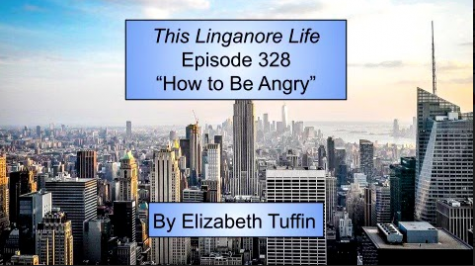
Hearing her students create a voice that channels their own personal reflections proved to Rebetsky that this course had a significant impact on them.
“Originally, we set the time limit for the podcast to 10 minutes. Then everyone began emailing and asking if the podcast could be longer. When I did the math, I realized I had set myself up for 12+ hours of listening. It was the most rewarding experience to hear student voices transformed into experts,” said Rebetsky.
English 101 is a challenging dual enrollment course, but it is proving to be so much more than a class for many students. Education can do more than just relay knowledge: it can inspire and empower the future leaders of the United States.
Your donation will support the student journalists of Linganore High School. Your contribution will allow us to purchase camera/recording equipment and software. We hope to raise enough money to re-start a monthly printed issue of our paper.


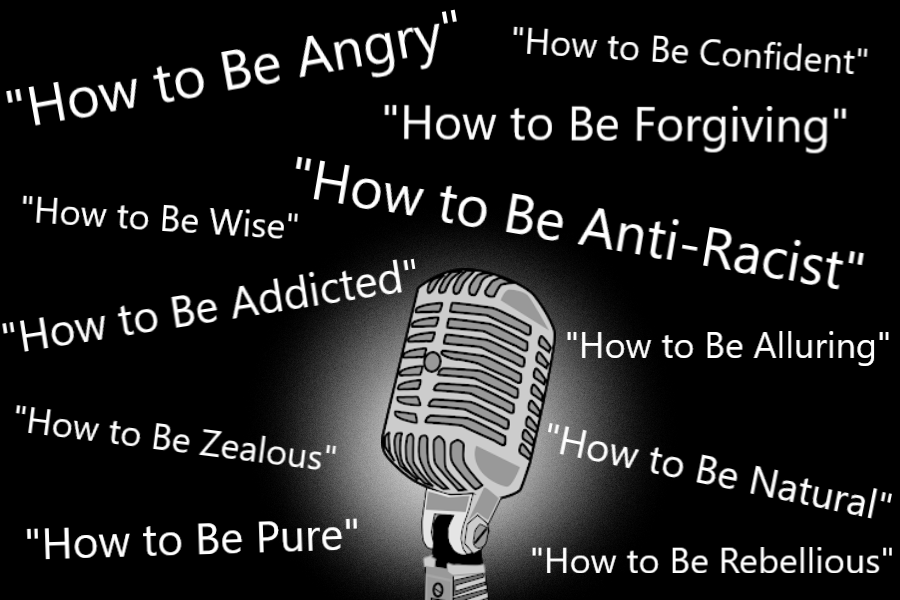
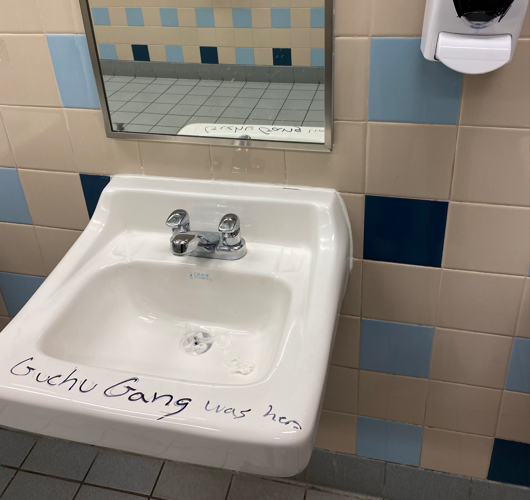
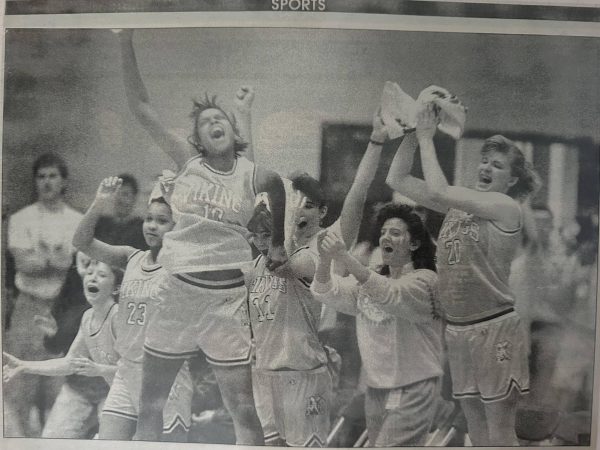
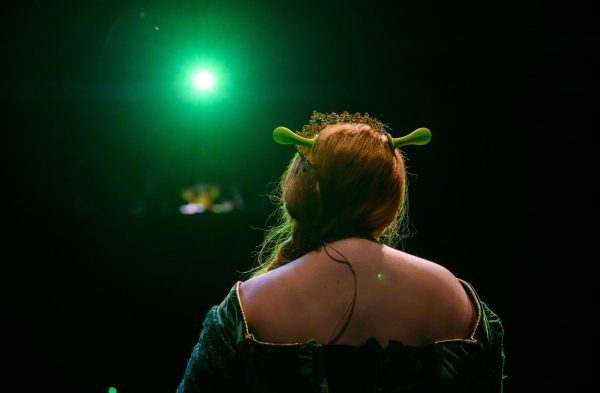




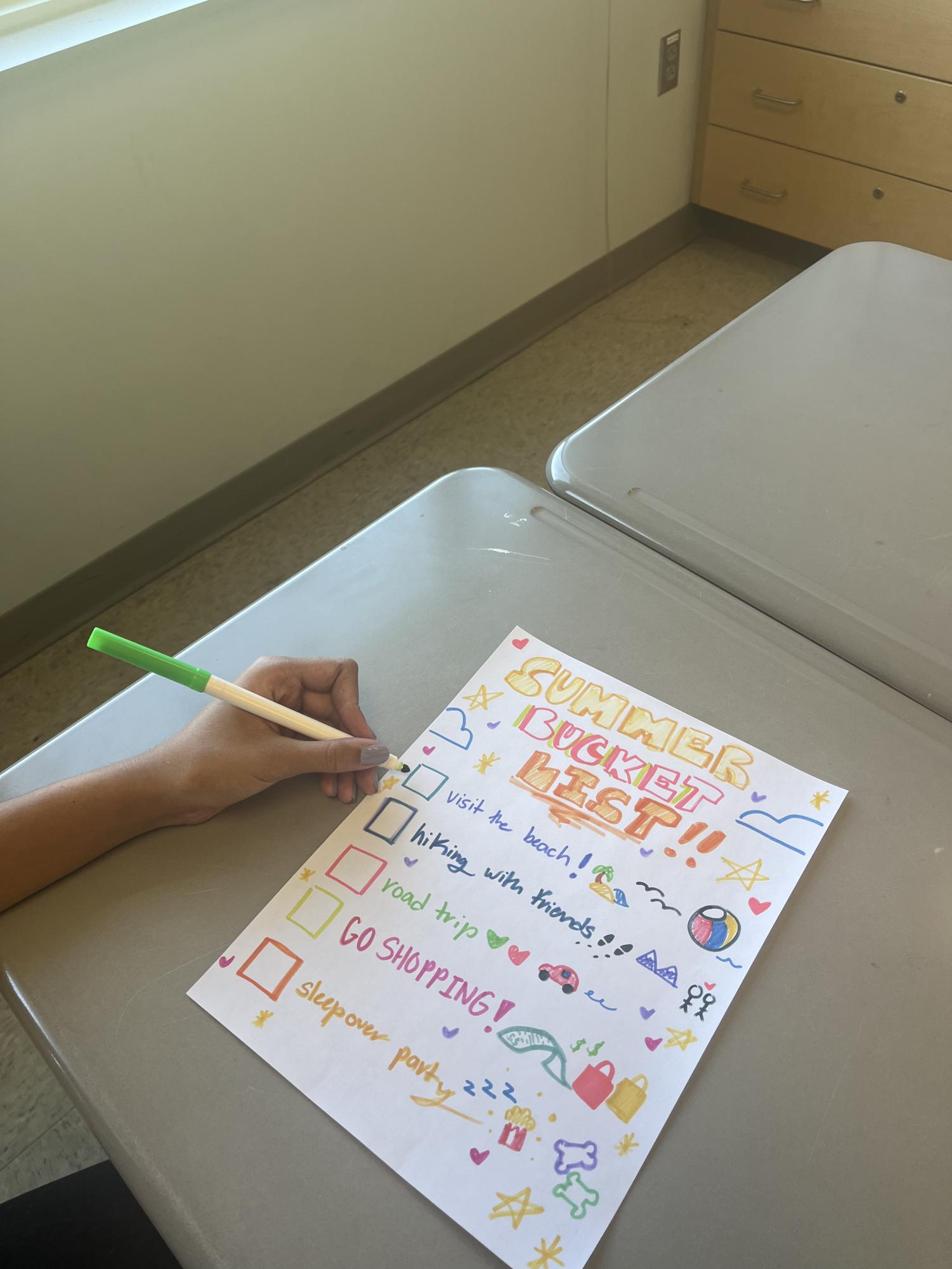
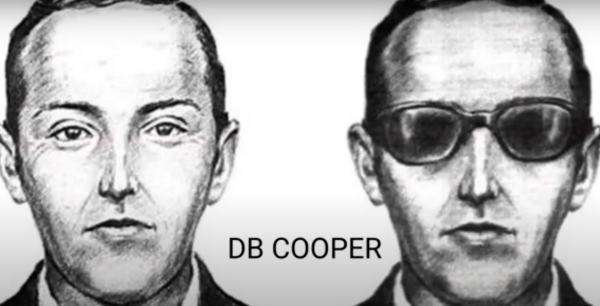

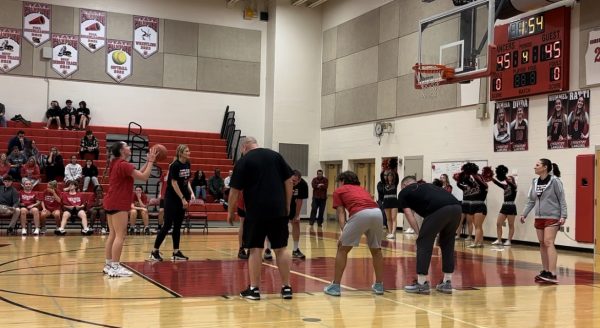
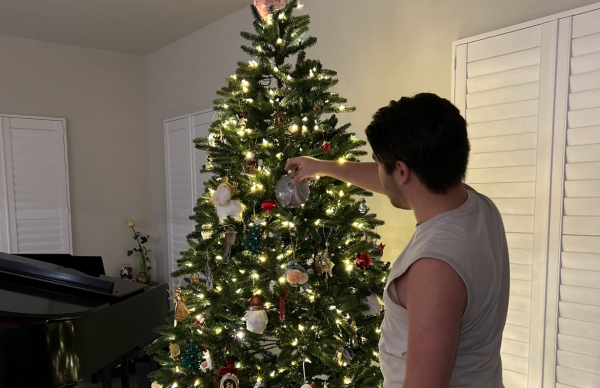


Richard Sandoval • Jan 25, 2021 at 9:55 pm
I’m Hispanic,I consider Myself lucky to have had Friends from Different Walks of Life,I’ve had Black, White,and Brown Friend s, Color of Skin means nothing to US, anybody that is Prejudice or Racist should stop and reconsider,CoExist